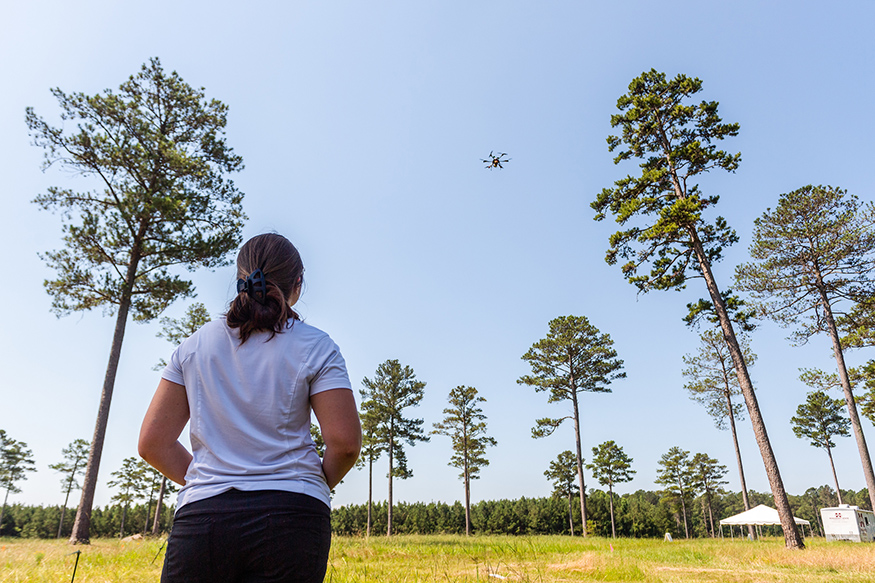MSU hosts competition awarding $720,000 to drone enthusiasts for their innovative ideas

Contact: Chris Bryant
STARKVILLE, Miss.—Mississippi State University’s Raspet Flight Research Laboratory recently played an integral role in an unmanned aircraft systems flight competition in Starkville, Mississippi, where $720,000 in prize money was awarded through federal innovation funding to drone enthusiasts.
The National Institute of Standards and Technology’s Public Safety Communications Research Division, along with Mississippi State and Kansas State University Aerospace and Technology Campus, hosted the First Responder UAS Triple Challenge; a prize competition for drone enthusiasts to build and operate unmanned aircraft that can better help first responders in emergency situations.
After a week’s worth of competitions, the First Responder UAS Triple Challenge awarded $150,000 in the final stage, part of a total available prize purse of $520,000 for two challenges, to teams of drone enthusiasts for building solutions to help emergency first responders locate multiple missing persons more efficiently.
“We were impressed with the competitors’ innovative ideas and diligent preparation,” said Tom Brooks, director of the Raspet Flight Lab. “Efforts like this accelerate technology availability to first responders, and we were thrilled to be a part of it.”
Challenge 3.1 winners were selected for improving image detection and enhanced navigation techniques to “close the distance” more quickly. Winners include:
- First place, Team AMAV from the University of Maryland, $40,000;
- Second place, Team ARCC from Pennsylvania State University, $20,000;
- Third place, Team Aggie from North Carolina A&T State University/Purdue University, $10,000; and
- First Responder’s Choice Award, Team AMAV from University of Maryland, $5,000.
In Challenge 3.2, teams were awarded prize money for innovating a cost-effective, robust and easily deployable drone solution which delivers data files in a cellular denied area. Winners of 3.2 include:
- First place, Team ARCC from Pennsylvania State University, $40,000;
- Second place, Team Mantech/FLYT Aerospace, $20,000;
- Third place, Team EpiSci, $10,000; and
- First Responder’s Choice Award, Team ARCC from Pennsylvania State University, $5,000.
Finally, the competition awarded prize money to teams for developing an attack and countermeasure on open-source navigation or control software that may disrupt a drone’s navigation for Challenge 3.3. The following winners were awarded $30,000 each:
- Team Mantech/FLYT Aerospace;
- Team ARCC from Pennsylvania State University; and
- Team CNA Corporation/RIIS LLC.
Raspet’s portion of the effort was coordinated by Shawn McNutt, aviation program manager in the MSU flight lab.
MSU’s Raspet Flight Research Laboratory is the nation’s leading academic research center dedicated to the advancement of unmanned aircraft systems. Raspet is the only institute in the world designated both as the Federal Aviation Administration’s UAS Safety Research Facility and as official UAS Test Sites for both the FAA and the Department of Homeland Security. Home to a fleet of the largest and most capable unmanned aircraft in academic use, Raspet conducts UAS research on behalf of federal agencies and commercial industry.
MSU is Mississippi’s leading university, available online at www.msstate.edu.